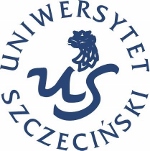Studies and researches
Vol. 7 Issue 1 - 6/2015
Learning the „Look-at-you-go” Moment in Corporate Governance Negotiation Techniques
This article explores in an interdisciplinary
manner the way concepts are learned or internalized, depending on the varying
means of transmission, as well as on the sequencing in which the information is
transmitted. In this sense, we build on the constructivist methodology framework
in assessing concept acquisition in academic disciplines, at an advanced level.
We also present the evolution of certain negotiation techniques, from
traditional setting, to less predictable ones. This assessment is compared to a
specific Pop Culture case study in which we find an expressive representation
of negotiation techniques. Our methodology employs both focus groups and
experimental design to test the relative positioning of theoretical concept
acquisition (TCA) as opposed to expressive concept-acquisition (ECA). Our
findings suggest that while expressive concept acquisition (ECA) via popular
culture representations enhances the students understanding of negotiation
techniques, this can only happen in circumstances in which a theoretical
concept acquisition (TCA) is pre-existent.
Read more
Keywords:
constructivism, negotiation techniques, concept acquisition, experimental method
JEL:
B41, M14, M53
constructivism, negotiation techniques, concept acquisition, experimental method
JEL:
B41, M14, M53














